By Molly Kirk
On this Veteran’s Day, a celebration to honor America’s veterans for their patriotism, love of country, and willingness to serve and sacrifice for the common good, we recognize some of the many veterans working at the Virginia Department of Wildlife Resources (DWR). We thank them for their service to their country and to DWR.
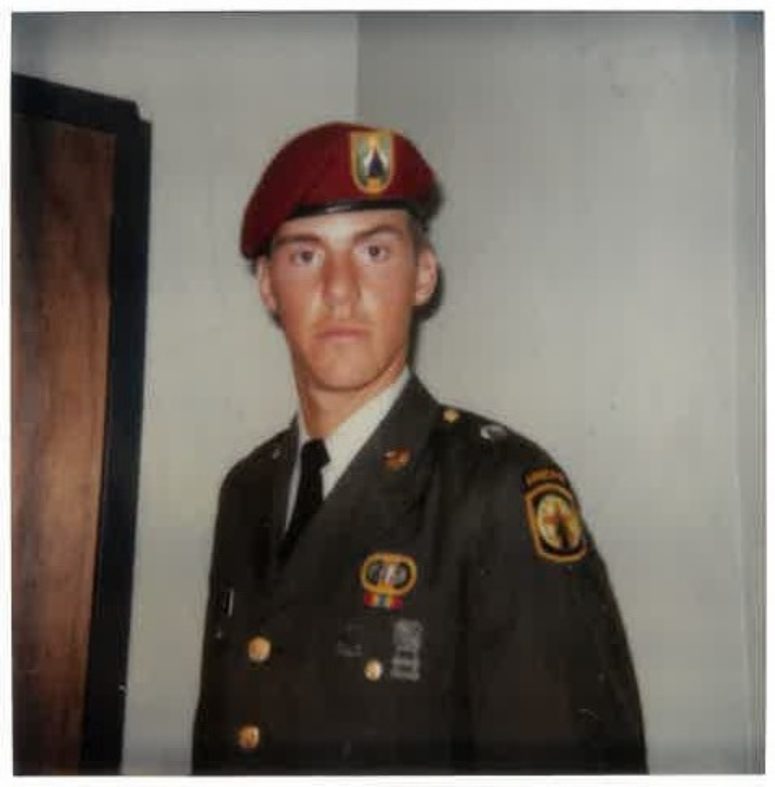
Colonel John Cobb during his years of service in the Army.
Colonel John J. Cobb, Chief of Law Enforcement Virginia Conservation Police
How long and in what capacity did you serve in the military, and how long have you worked at DWR and in what capacity?
I served in the Army from 1983 to 1986 as an Airborne Military Police Sergeant. I started at DWR in 1995 as a Game Warden and now serve as Colonel, Chief of Law Enforcement.
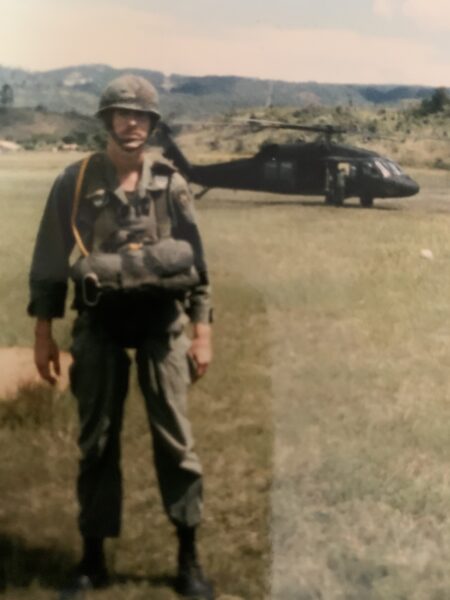
Colonel John Cobb during his time in the Army, pictured in Honduras with a Black Hawk helicopter. As an airborne military police sergeant, he parachuted out of the helicopter.
What was your career path from the military to DWR?
I always wanted to be either a game warden or wildlife biologist. After leaving the military, I obtained my Bachelors of Science degree from Virginia Tech in Wildlife Management and then worked for local law enforcement.
How has your military service experience helped you in your DWR career?
At first, mainly the knowledge that even the highest personal goals are attainable as long as you work hard and that the more you put into something the more you get out of it. Later, the knowledge of leadership skills and the impact they can have on a team to accomplish even more.
What experience from the military best served you post-service?
True understanding of integrity, commitment, and honor.
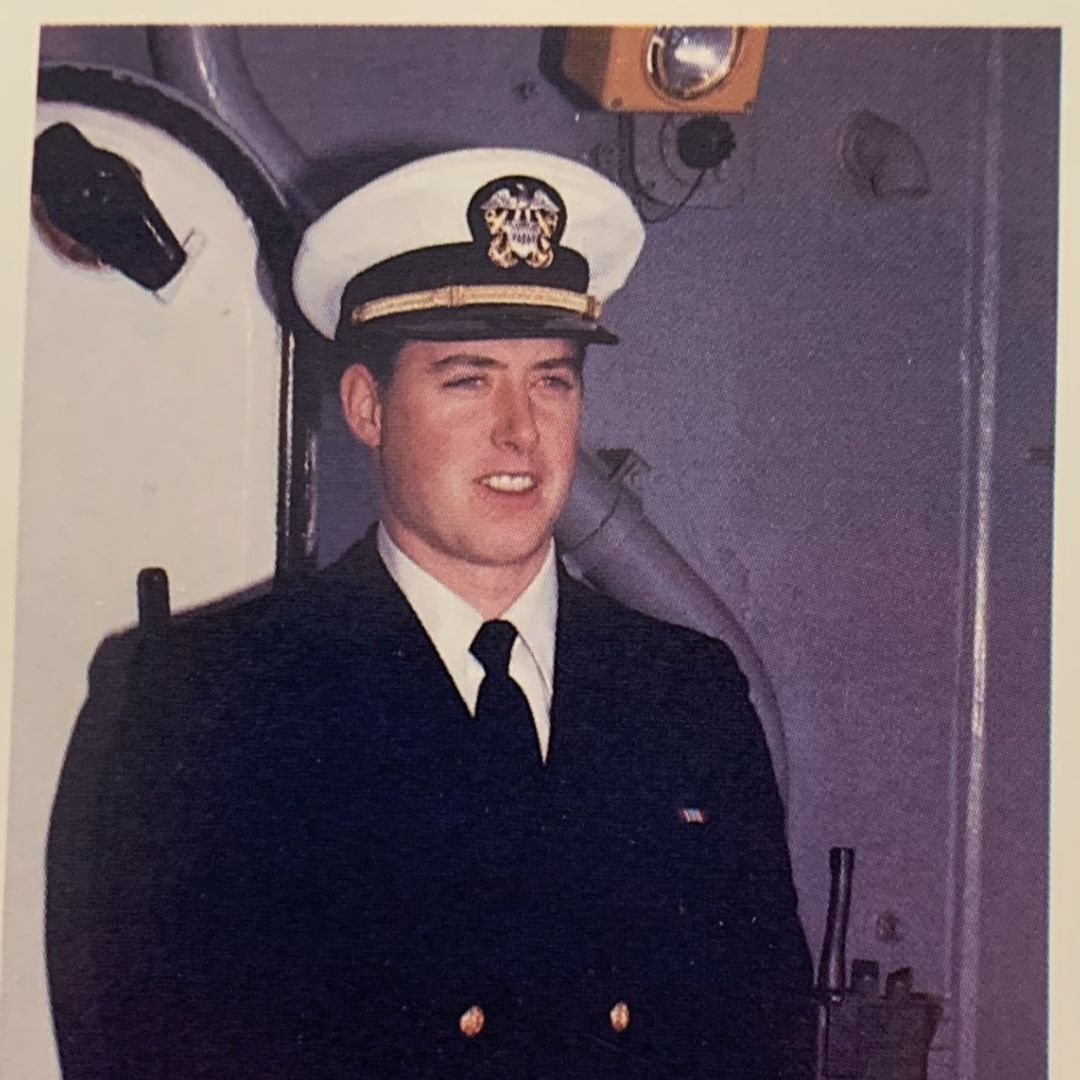
Paul Kugelman pictured during his time in the U.S. Navy.
Paul Kugelman, DWR Legal Compliance Officer
How long and in what capacity did you serve in the military, and how long have you worked at DWR and in what capacity?
I served five years on active duty and three in the reserves. On active duty, I served as a Surface Warfare Officer in the U.S. Navy. My initial tour of duty was aboard the USS America (CV-66), an aircraft carrier, where I served as the division officer for the Master at Arms (police force), Air Launched Weapons, and Electrical. I then served to pre-commission the USS Hue City (CG-66) (pronounced Way City), an Aegis cruiser, as the communications officer and assistant operations officer. As a reservist, I was an officer in the Navy Control of Shipping—basically a convoy officer to be dispatched to civilian ships as a liaison to the U.S. Navy.
What was your career path from the military to DWR?
The short answer is that I went from active duty to work as a software designer for shipboard communications systems (Tracor Applied Sciences), to law school, then to private practice, to state government practice (OAG for 18 years), to DWR (been here about 2.5 years).
How has your military service experience helped you in your DWR career?
My military experience helps me with focus and prioritization. In the military, the central questions that drives your daily actions and decisions are “What is the mission?” and “Is what I am doing moving towards accomplishing that mission?” This keeps me properly focused. As the agency’s legal compliance officer, I am often working on requests from across the agency. This often requires me readjust what I am working on to ensure that the agency’s needs are timely and effectively met.
What experience from the military best served you post-service?
It was learning to appreciate and understand people in the day-to-day—saying “please” and “thank you,” actually listening when spoken to, understanding that people want to do a good job, and, often enough, just getting out of the way to let them do that.
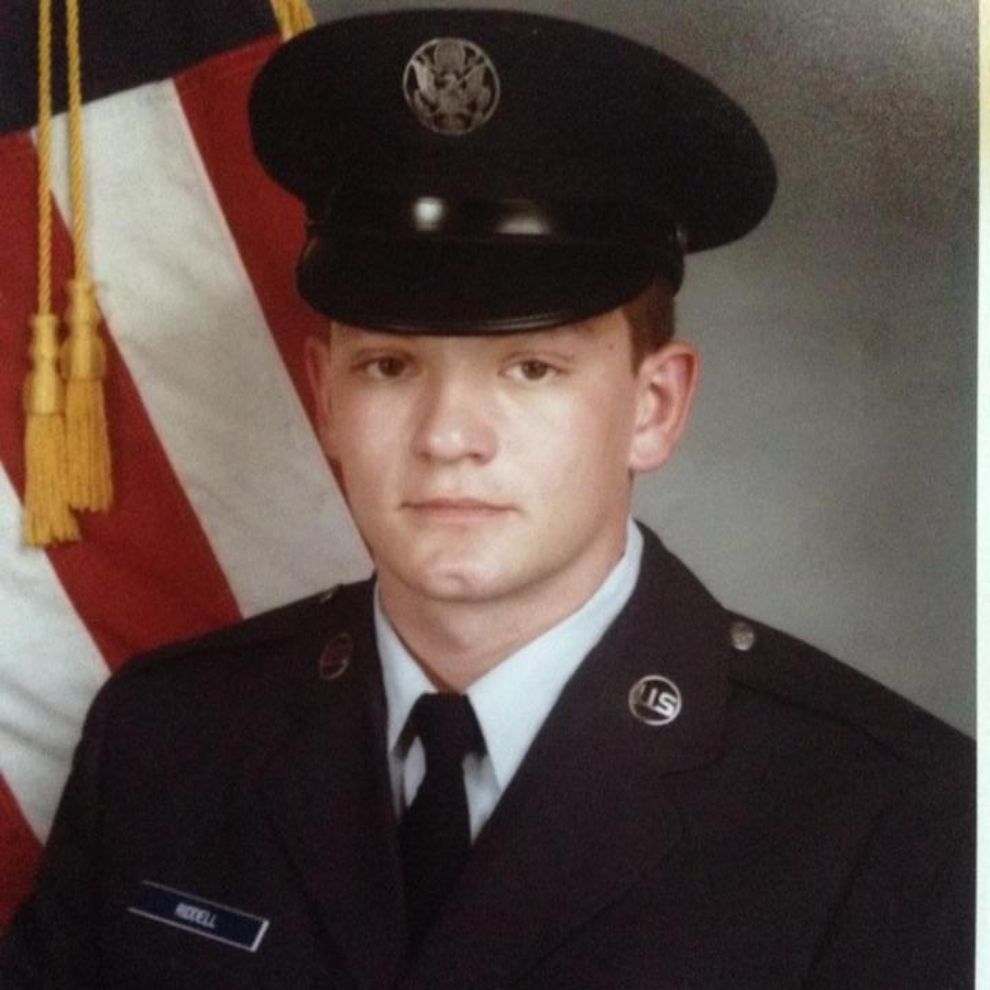
Bill Riddell during his U.S. Air Force service.
Bill Riddell, DWR Safety Compliance Officer
How long and in what capacity did you serve in the military, and how long have you worked at DWR and in what capacity?
I spent five years in the U.S. Air Force as a 57150 Crash Fire Rescue Specialist, basically a firefighter. I served two years at a remote base in Alaska and was at McGuire AFB, New Jersey, and Charleston AFB, South Carolina, and spent eight months in Honduras, Central America.
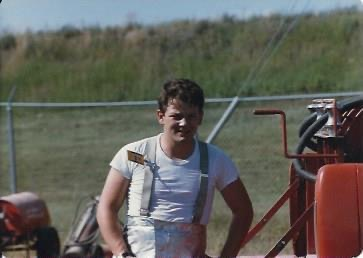
Bill Riddell serving in the U.S. Air Force Fire Department while in Alaska in 1986.
I have been working at DWR for 10 months now as the Safety Compliance Officer and now the Agency Transportation Officer
What was your career path from the military to DWR?
I got out of the Air Force in April of 1989 and got hired as a firefighter for the Richmond Fire Department in May of 1990. During my time in the Richmond Fire Department, I furthered my knowledge and became an instructor and taught my fellow firefighters how to better do their job and work with their equipment and do Emergency Medical Services better. I retired from Richmond Fire in July of 2012 and went to work for Virginia Commonwealth University as a Hazardous Waste Technician, then in 2021 moved to Department of Labor and Industry (DOLI-VOSH) and moved to DWR in December of last year.
How has your military service experience helped you in your DWR career?
My job as a firefighter and Emergency Medical Technician has helped build the base of training that I have for the safety field that I have continued to build on in my life and now use to keep the people at DWR safe.
What experience from the military best served you post-service?
Working as a firefighter in the service and for the citizens of Richmond has instilled in me a commitment to serve and to protect and to make sure that the people around me are safe. My days of running into burning buildings are now replaced with creating policies and writing reports and trying to get the personnel the equipment that is needed to stay safe and keep protected.

